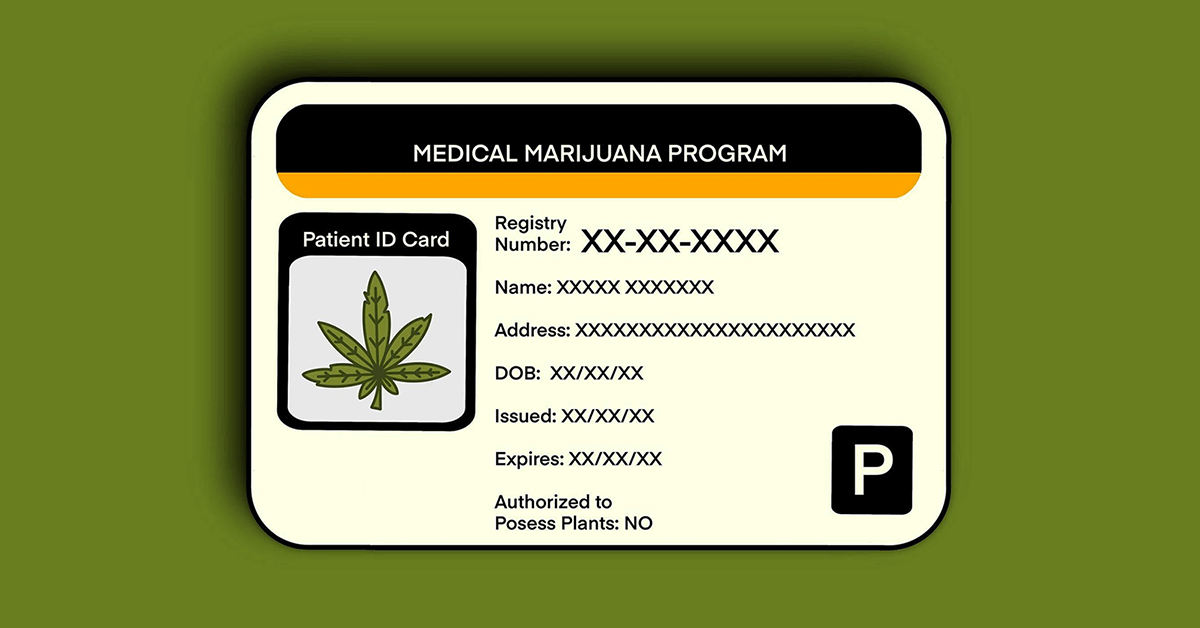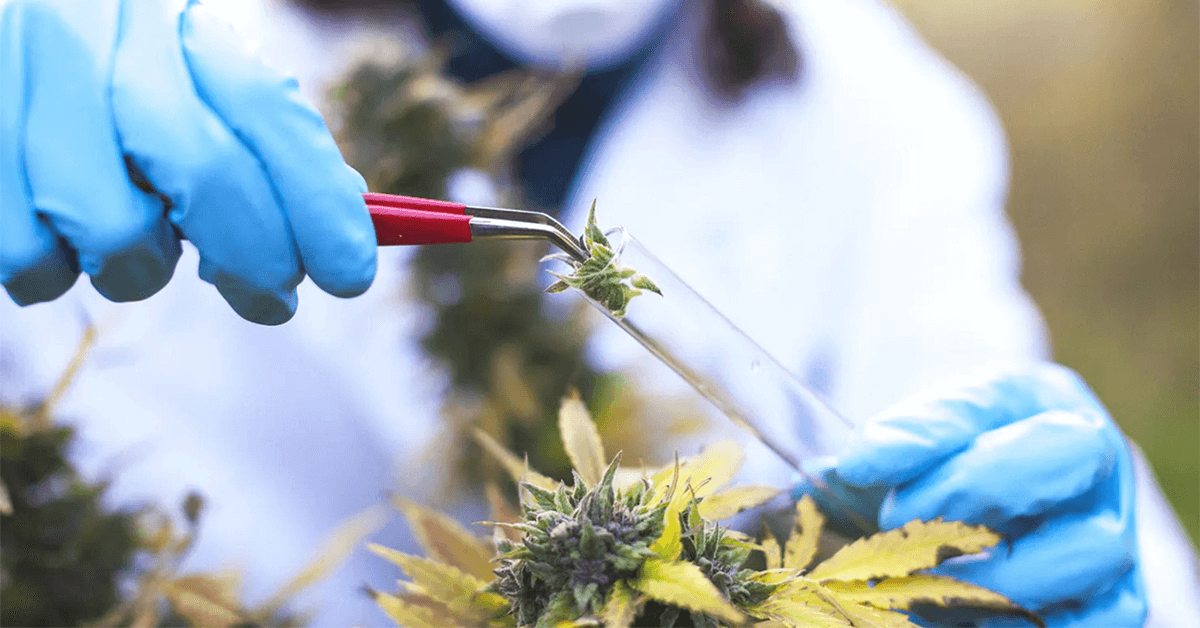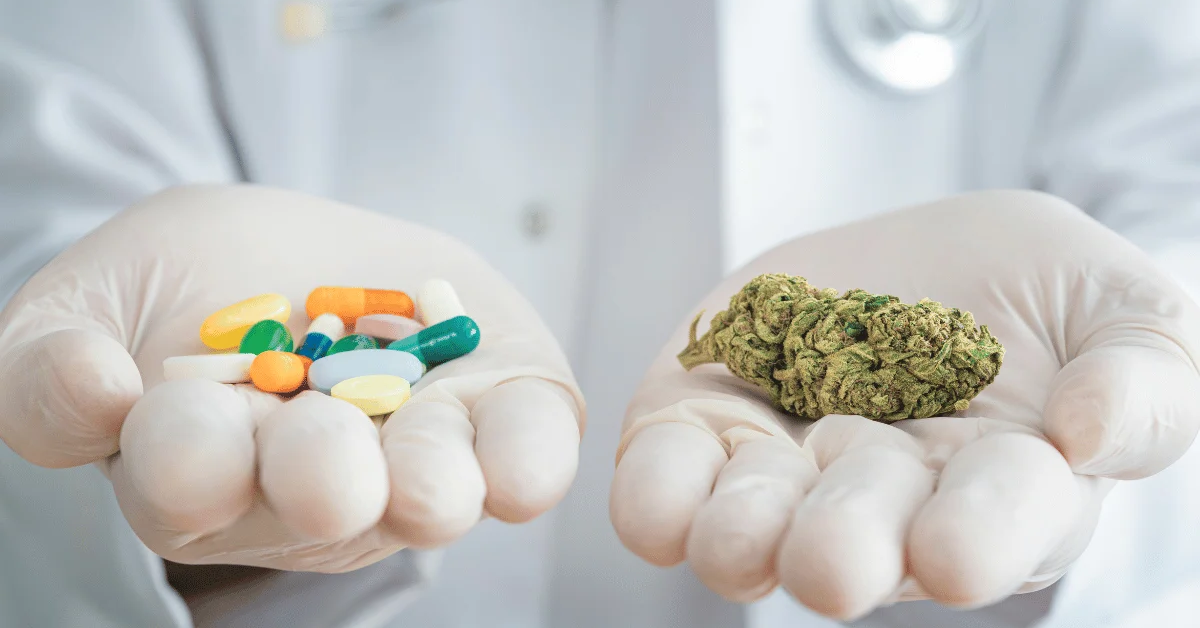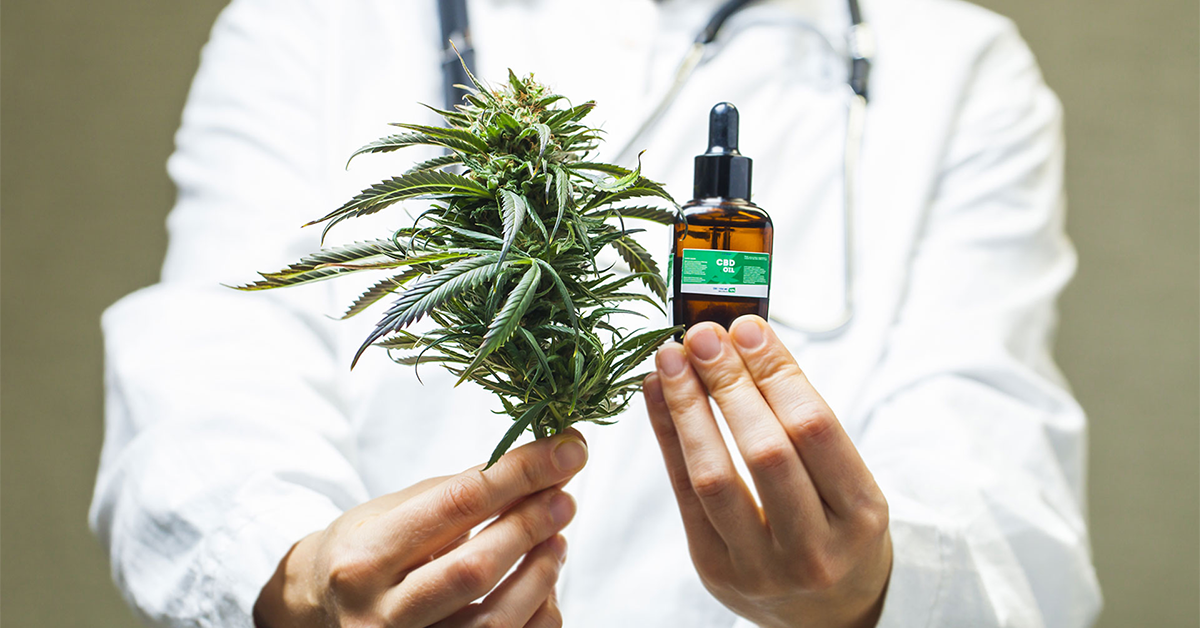The Therapeutic Journey: Understanding Michigan's Medical Cannabis Process and Benefits

The conversation around cannabis in Michigan has evolved significantly, particularly in the realm of medical use. Dr. David Crocker, a radiologist and co-owner of Michigan Holistic Health, champions the therapeutic application of cannabis, especially for chronic pain—a condition explicitly recognized under state law for medical cannabis use.
According to Dr. Crocker, Michigan recognizes about 20 different conditions that qualify individuals for a medical cannabis card. Among these, chronic pain is the most prevalent, but the spectrum of qualifying conditions extends to psychological issues such as PTSD, autism, and OCD, as well as physical ailments like cancer and chronic nausea.
For those in Michigan considering a medical cannabis card, the process mirrors that of a conventional medical appointment. Interested individuals initiate contact typically by phone, leading to the gathering of medical records. After a review, either a telephonic or in-person consultation follows to discuss one's condition and educate about cannabis. Subsequently, the necessary paperwork is assembled to apply for a card. Once mailed to the state, the card is usually issued within a few weeks.
Despite the potential health benefits, Dr. Crocker notes a lingering stigma within the medical community towards cannabis. He observes that many doctors, unfamiliar with cannabis from their medical training, are hesitant to recommend it. This hesitancy often stems from a lack of knowledge about its benefits, appropriate dosing, and general usage.
Nevertheless, acceptance is growing, especially since the legalization of recreational cannabis in Michigan in 2018. While recreational use is restricted to those over 21, medical cards can be issued to adults 18 and older, and under certain circumstances, to minors. These cases require the approval of two physicians and a guardian responsible for managing and overseeing the dosage.
Dr. Crocker pointed out that even before recreational cannabis was permitted, many sought medical cards as their only legal access point to cannabis. With recreational dispensaries now operational, there's been a noticeable decline in medical card applications, though benefits like more rigorous testing for contaminants and lower taxes still make the medical route appealing.
For medical users, experiencing a 'high' is not a requisite for relief. Dr. Crocker highlighted that the right dosage and form—like edibles—can provide relaxation and physical comfort without significant psychoactive effects, particularly important for elderly patients.
Personal testimonies further corroborate the benefits of a medical cannabis card. Rayna Freeman, a kinesiology sophomore, used her medical card to manage chronic headaches and nausea. The process, as outlined by Dr. Crocker, involved a form completion, a telephonic consultation, and a parental consent for minors. Freeman emphasized the relief she experienced, which profoundly improved her daily life.
Similarly, Haven Youngblood, a creative advertising sophomore, pursued a medical card for insomnia and anxiety. Knowledge of cannabis benefits, supplemented by familial connections to the cannabis industry, facilitated her access, significantly enhancing her sleep quality and reducing anxiety.
These experiences underline a growing acceptance and recognition of medical cannabis's role in managing and alleviating various medical conditions, reflecting a broader shift towards embracing its therapeutic potential within Michigan's medical community.
Investigating Cannabis as a Treatment for HIV and Cardiac Conditions at MSU

Researchers at Michigan State University are actively exploring the health benefits of cannabis in treating a range of diseases, highlighting its potential anti-inflammatory properties. This research is particularly focused on diseases like HIV and diabetes, where inflammation plays a significant role in disease progression.
Professor Norbert Kaminski of the Department of Pharmacology and Toxicology is investigating how certain cannabinoids—the chemical compounds found in cannabis—might help delay neurocognitive disorders in HIV patients, conditions that are similar to Alzheimer's disease. His findings suggest that HIV patients who use cannabis exhibit lower levels of monocytes, a type of white blood cell implicated in the neurodegeneration seen in HIV by damaging neurons in the brain. This is in contrast to non-cannabis users with HIV, who show higher levels of these cells. Kaminski's research aims to isolate the beneficial effects of these cannabinoids from their psychoactive effects, potentially leading to the development of non-psychotropic synthetic cannabinoids that retain their anti-inflammatory properties.
In addition to Kaminski's work, Professor Omayma Alshaarawy from the Department of Family Medicine is studying the impact of cannabis on cardiac and metabolic health. Alshaarawy's work is critical in establishing whether the anti-inflammatory effects seen in animal studies hold true in humans. A key part of her research focuses on how cannabis is consumed, noting that most human users smoke the drug—a method that itself can induce inflammation and complicate health issues.
Alshaarawy emphasizes the importance of understanding both the beneficial and harmful effects of cannabis as its use becomes more widespread with legalization across many states. She advocates for a balanced approach, recognizing that while cannabis has potential health benefits, the mode of consumption and associated risks must be carefully managed.
This ongoing research at Michigan State University underscores the complexity of cannabis as both a medical and recreational substance, necessitating a nuanced understanding of its effects to optimize its use in a safe and effective manner.
CBD's Impact on Senior Health and Wellness: Tucker Jasso's Mission

Tucker Jasso, 60, found a significant shift in her approach to managing pain after years of relying heavily on ibuprofen, a habit borne from a lively youth filled with farm work and rodeo circuit participation. Her transition to CBD elixir for daily maintenance and CBD-infused pain relievers for acute episodes marked a departure from traditional medicine, leading to seldom use of conventional pain medication.
Jasso's advocacy for CBD products was deeply influenced by witnessing the positive impact these had on a dear friend, Charlie, who battled stage 4 pancreatic cancer. According to Jasso, CBD products facilitated a comfort that allowed Charlie to remain active and alert, offering his family precious, quality time in his final days. The profound effect on Charlie's well-being in his last weeks, where he remained lucid and engaged, left an indelible mark on Jasso and motivated her to express her gratitude in a unique way.
This experience spurred the creation of "For the Love of Charlie" and "Inspired by Charlie," online platforms dedicated to promoting medical cannabis products targeted at older adults. Jasso's mission through these initiatives is to alleviate the aging process's pains and challenges, aiming to prevent others from enduring the hardships faced by Charlie.
Jasso, a Lyndon Township resident, has been marketing hemp-derived products to the senior demographic for over a decade. Her product line, encapsulating the essence of "For the Love of Charlie," includes a variety of formats such as elixirs, creams, lotions, roll-ons, gummies, and capsules, tailored in dosage and application to meet diverse needs.
Jasso's outreach extends across Michigan, particularly in Macomb and Oakland counties, where she educates older adults at senior centers and living facilities about the benefits of CBD. Her "open houses" aim to dispel common misconceptions surrounding cannabis-based products, emphasizing the distinction between therapeutic use and the potential for misuse. Her efforts focus on empowering seniors with knowledge, guiding them in understanding product labels and encouraging informed decisions regarding their use.
As legal landscapes evolve, with Michigan and several states legalizing medical and recreational cannabis, its adoption among older adults is notably increasing. The University of Michigan's Institute for Healthcare Policy and Innovation highlighted this trend, with their research indicating a rise in cannabis use among those 50 and older, from 9.5% in 2019 to 12% in 2023. This uptick underscores the need for awareness about the interactions between cannabis and other medications, especially for older adults who may face additional risks from its use.
The university's findings call attention to the importance of discussing cannabis use with healthcare providers, given the potential for adverse interactions with medications for insomnia, depression, anxiety, pain relief, seizures, and blood thinners. Anne Fernandez, an addiction psychologist at the University of Michigan, underscores the vulnerability of older adults to cannabis-related risks, advocating for open communication with medical professionals to navigate its safe use.
Michigan's Major Clinical Trial to Explore CBD as an Opioid-Sparing Strategy in Surgery

In a landmark initiative aimed at combating the opioid crisis through innovative pain management strategies, Michigan Medicine and Henry Ford Health have announced a collaboration on what is poised to be the largest clinical trial ever conducted to evaluate the efficacy of cannabidiol (CBD) in reducing opioid dependence after surgery. Specifically, the study will focus on patients undergoing total knee arthroplasty, with the broader goal of exploring CBD's potential as a perioperative medication across a spectrum of elective surgeries.
Funded by a generous $6 million, 5-year grant from the National Institute of Arthritis and Musculoskeletal and Skin Diseases (NIAMS), part of the National Institutes of Health, this multi-site clinical trial seeks to address the critical issue of postoperative pain management—a domain traditionally dominated by opioids. Despite their effectiveness in pain relief, opioids carry a high risk of addiction and a host of side effects, including nausea, dizziness, and constipation, prompting the search for safer alternatives.
The trial will be spearheaded by a team of distinguished researchers: Chad Brummett, M.D., the Bert N LaDu Professor of Anesthesiology and co-director of the Opioid Research Institute at the University of Michigan; Kevin Boehnke, Ph.D., research assistant professor within the Michigan Medicine Department of Anesthesiology; and Joel Gagnier, Ph.D., from Western University Ontario. Together, they will oversee the recruitment of 380 adult patients undergoing primary total knee arthroplasty at Michigan Medicine and Henry Ford Health.
Participants in this double-blind randomized controlled trial will be assigned to one of four groups, receiving a combination of placebo or 300 mg/day of CBD for one week prior to their surgery and for four weeks afterward. This regimen will be complemented by a standard pain treatment pathway, which includes an opioid prescription post-discharge and refills as necessary, thus maintaining a controlled environment to accurately assess CBD's effects on post-surgical opioid consumption.
This trial is significant, not only for its scale but also for its comprehensive approach to understanding CBD's potential benefits. Beyond merely measuring opioid intake, the study aims to provide insights into CBD's impact on pain intensity, anxiety, inflammation, and sleep quality post-surgery. Such data is crucial, given the increasing popularity of CBD among the general public, with an estimated 14% of Americans using CBD, primarily for chronic pain and related symptoms, despite a lack of substantial clinical research validating its effectiveness.
The move to investigate CBD as a viable alternative to opioids is motivated by the urgent need to offer patients safer pain management options. Opioids, while effective, present a slippery slope to dependence and addiction, a scenario the medical community is keen to avoid. By potentially establishing CBD as an effective perioperative pain management tool, Michigan Medicine and Henry Ford Health aim to set a new standard in surgical care, reducing reliance on opioids and mitigating the risk of addiction.
This clinical trial represents a crucial step forward in the quest to redefine postoperative pain management. Lara Zador, M.D., a specialist in anesthesiology and pain medicine at Henry Ford Health, emphasized the significance of this research in assessing CBD's capacity to curtail opioid use after surgery. Given the widespread prevalence of surgeries requiring pain management, the implications of this study extend far beyond knee arthroplasty, offering hope for a future where elective surgeries are associated with less risk and better outcomes.
In sum, this pioneering clinical trial by Michigan Medicine and Henry Ford Health not only highlights the institutions' commitment to advancing medical research but also underscores the broader medical community's dedication to finding safer, more effective pain management solutions. As the study progresses, it promises to shed light on CBD's role in post-surgical care, potentially revolutionizing the way pain is managed and offering a beacon of hope for millions of patients worldwide.
Medical Cannabis: A Promising Alternative for Neuropathic Pain Relief

A comprehensive study recently revealed the efficacy of medical cannabis in alleviating neuropathic pain, showcasing not only its rapid and long-lasting therapeutic effects but also a better side-effect profile compared to traditional medicines.
The research, undertaken collaboratively by University Medical Center Hamburg-Eppendorf (UKE Hamburg) and telehealth platform Algea Care, delved into the therapeutic impacts of cannabis on patients grappling with chronic neuropathic pain. As reported in the reputable Medical Cannabis and Cannabinoids journal, the study encompassed 99 German participants, aged 20-81.
Medical specialists provided these patients with cannabis prescriptions, and the predominant form consumed was the cannabis flower, containing THC levels ranging from 12-22%. Each patient's daily intake peaked at 1g.
The study methodically assessed several parameters over six follow-up interviews, including pain intensity, sleep quality, overall health, side effects, and treatment tolerance. Comparison metrics used the non-parametric Wilcoxon Rank Sum Test.
Key findings include:
-
Rapid Pain Reduction: Most patients reported severe pain (average score of 7.5/10) at the onset. Remarkably, within a mere six weeks of commencing cannabis therapy, the average pain score plummeted to 3.75.
-
Improvements in Overall Health: At their first revisit, 90% of patients noticed their general health improving. This trend persisted, with 99% of the participants (97 individuals) reporting improvements at some point during the six-month study duration.
-
Positive Response to Treatment: 91% of patients, totaling 279 out of 307 across all follow-ups, expressed a positive reaction to the cannabis regimen.
-
Minimal Side Effects: The study did not record any severe side effects. Mild side effects mentioned were dry mouth (5.4%), fatigue (4.8%), and an uptick in appetite (2.7%).
Interestingly, despite the promising findings, Algea Care highlights that a mere 2% of Germany's doctors prescribe medical cannabis. Dr. Julian Wichmann, Algea Care's CEO, emphasized the study's significance, stating, "Medical cannabis has not just showcased its efficiency but has also proven to have notably fewer side effects in comparison to conventional medicines."
Dr. Wichmann further noted the unfortunate societal stigma associated with medical cannabis in Germany. Nevertheless, an estimated 250,000 individuals across the country have availed of its numerous benefits, ranging from relief for conditions like migraines, depression, ADHD, and chronic pain, to name a few.
Abstract Snapshot: The study affirms medical cannabis as a potent and safe treatment option for chronic neuropathic pain and associated sleep disturbances. Initial pain and sleep scores saw substantial reductions within six weeks, and these positive effects were sustained throughout the study's six-month span. Minimal side effects were reported, with an overall therapy tolerance of 91%.
Michigan Medical Marijuana Update: Bridging the Knowledge Gap

Michigan proudly stands as one of the 38 states that have embraced medical cannabis legalization. Yet, a 2021 Journal of Cannabis Research study revealed a startling statistic: only 18% of Michigan's medical marijuana patients rate their primary care physician's insight on the subject as "very good" or "excellent." Interestingly, the majority have communicated their cannabis usage to their doctors. But feedback on physician knowledge is varied, and a significant portion sought their medical cannabis licenses from external doctors.
Dr. Evan Litinas sheds light on this by stating, "A vast segment of consumers utilizes cannabis for holistic well-being. If patients feel a disconnect discussing cannabis with their doctors, they often approach local cannabis dispensaries, hoping a budtender might provide clarity."
He cautions, however, "While many dispensaries are top-notch in assisting consumers, there are instances where they fall short in disseminating accurate information about this potent medicinal herb. This disparity can create a chasm between the consumer's understanding and expectations of cannabis."
Dr. Litinas is collaborating with Local Roots Cannabis on 'Medical Mondays' throughout September and October. Every Monday, between noon and 4 p.m., he'll be at the dispensary, addressing queries on THC, CBD, and beyond. Though he won't be providing personalized medical counsel, he aims to offer a holistic understanding of cannabis's medicinal applications, from interpreting lab outcomes to elucidating cannabis's impact on specific ailments. Moreover, he wishes to instigate a dialogue among consumers and their primary physicians about cannabis.
With a career spanning over a decade in the medical marijuana realm, including contributions to cannabis research at the University of Michigan and a pivotal role as the chief medical officer for Ann Arbor dispensary Om of Medicine (now Mission Ann Arbor) till 2020, Dr. Litinas is passionate about edifying the masses on cannabis. His endeavors culminated in a harmonious alliance with Local Roots owners, Roy and Ronda Liskey. The synergy was palpable, as Dr. Litinas remarked, "The Liskeys are genuine community pillars. Our collaborative efforts will surely elevate cannabis education."
Roy Liskey acknowledged Dr. Litinas' commitment, stating, "Though there's no definitive promise that products will universally aid medical conditions, a plethora of research-backed evidence exists. Dr. Litinas' engagement is a boon to our community. We're indebted to his expertise and dedication."


 Helpful Links
Helpful Links